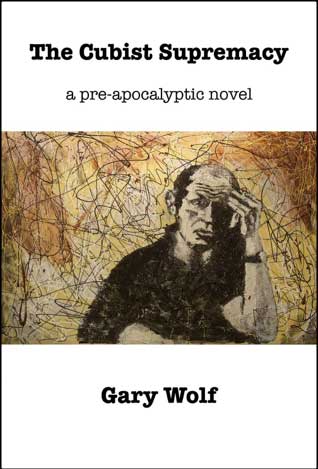|
In my post of 12/27/24, I reviewed the work of the great Friedrich Hayek. Now I would like to use that discussion as a springboard to further examine the ongoing collapse of the Western economic and financial system.
Hayek helps us to see economic life for what is is: the “extended order of human cooperation,” as he calls it. This is society’s vast network of ideas, contacts, and exchange; an endless web of human interaction. This order is infinitely complex, and in a constant state of flux; as such, it lies beyond the ability of any single authority to direct it. The extended order has evolved into its current form. Hayek points to the pioneering vision of Adam Smith, who realized that a type of evolution is the driving force behind the genesis and development of economic and other institutions. (Hayek remarked that Smith and similar thinkers were Darwinian before Darwin, and may have influenced the latter.) Think of law, language, and money: none were the result of a unified, conscious plan. Rather, they evolved in a spontaneous, self-ordering process, in a series of adaptations, producing a workable framework in which people could function. The upshot is that economic structures cannot be planned. Interference with the extended order is doomed to failure, and if pushed far enough, will lead to death and destruction. The case of the Soviet Union is obvious enough. But the same principle applies to our current predicament. Consider the extent of the disease: the colossal edifice of central planning in the West, guided by Keynesian economic theory, is sufficient all by itself to guarantee disaster. It has resulted in an activist Federal Reserve, unbacked fiat currency, rampaging inflation, out-of-control debt, asset bubbles galore, and a rapacious government that now accounts for fully half of what passes for an economy. Add to this the other poisons administered to the extended order, such as DEI and the Green-Industrial Complex, to name two of the worst offenders. None of these monstrosities would exist without coercive government interference. Needless to say, they demonstrate a complete disregard, and even contempt, of economic reality. We can point to additional distortions that result from economic illiteracy. One of them is the absurd notion of a “consumer-based economy.” Consumption is a result of wealth creation, not its cause. The people parroting this inversion of reality confuse the fruit of the tree with the tree itself. And our tree is dying, and will continue to wither as long as we concentrate our efforts on simply eating the fruit. Related to the consumer-based nonsense is the notion that China is dependent on the American consumer, and therefore we can punish them by restricting access to our enormous market. This could make sense only if we were exchanging something of value for the imported consumables. If we were paying in gold, or oil, or even manufactured goods of our own, the dependency story might be plausible. However, we “pay” for the goods with depreciating dollars that are conjured up on the keyboards of the government, the Fed, and the banks. And this means expansion of debt, which, ironically, was until recently being funded by the likes of China. They stopped buying Treasuries, but we can always compensate by creating more dollars, inflation be damned. So let me get this straight. We will punish China (and other BRICS countries) by threatening to stop consuming their goods while giving them nothing of value in return. How on earth will they survive? Real-world, Hayekian economics teaches us that wealth is created by production of tangible goods (instead of financial products), savings (instead of consumption), and the use of sound money (instead of unbacked fiat currency). All of which is coordinated by means of true price discovery and other market mechanisms—not by the declarations and schemes of bureaucrats and clueless academics. What is the proper role of government? Mainly to get out of the way. Stop interfering in the extended order. Instead, grease the wheels; facilitate commerce rather than hindering it. Safeguard property rights. Enforce contracts. Prevent crime and fraud. Build and maintain infrastructure. Humanity is not a proper subject for rational central planning. The aggregate of all human action, beliefs, and behavioral patterns is unknowable. These facts, as Hayek laments, run against the grain of mainstream economic thinking. It is time for a new paradigm. The improvement-of-mankind fanatics consider man to be an input to their calculations, in the same way as one might treat a chicken, a plant, or a steel beam. In other words, in their view, man is a part of the natural world: understandable, predictable, malleable. With the correct laws in place, and the correct government subsidies, he can be forced to live in perfect harmony with nature. This is a false and dangerous assertion. Man can never be integrated into the remainder of nature. He is condemned to stand outside it, to be an observer and an actor with his own unique agenda. This means that answers to the riddles of our existence will not be found in interventionism and central planning, which pretend that society can be harmonized, as if man really were a chicken or a plant.
0 Comments
Leave a Reply. |
Dystopian literatureWelcome to the blog! While you're here, check out the six dystopian novels by Gary Wolf. His latest is The Cubist Supremacy. Archives
May 2025
Categories
All
Interesting viewpointsAce of Spades |

 RSS Feed
RSS Feed